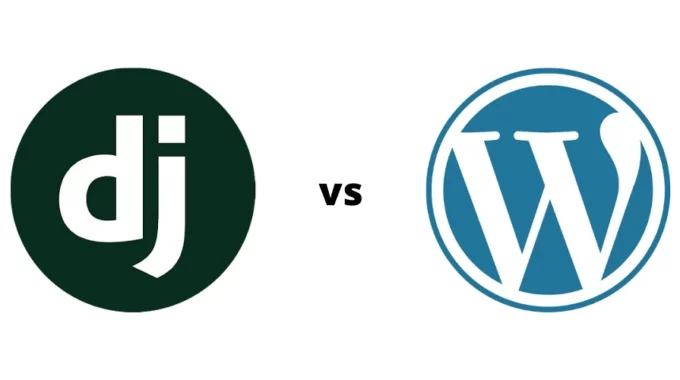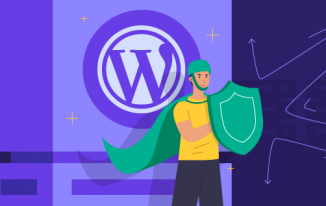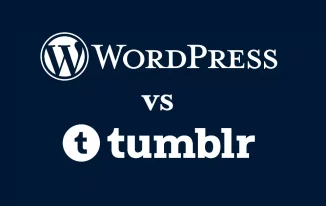Your top goals as a web developer should be to build, design, optimize, and host the very best website you are capable of in the shortest period of time feasible. There are several different Content Management Systems from which you may create your website (CMSs).
WordPress and Django CMS are two widely used systems; yet, it may be difficult to determine which one is best for your particular needs. In the below post, we are going to compare WordPress vs Django CMS to determine which content management system is most suited to meet your requirements.
Many people have come to the conclusion that they made the wrong choice when selecting the platform on which to develop their websites.
Both Django and WordPress have built reputations for themselves as flexible content management systems (CMS) that simplify the process of website construction; nonetheless, the question remains: which one is best for you?
WordPress vs Django CMS: A perspective
Before we begin analyzing each of these platforms in terms of the specific categories they fall into, let's take a look at what they are, at their most important level. It is essential to have a grasp of how they function in order to determine whether or not the platform is suitable for you.
What is Django CMS?
One of the most well-known and widely used open-source tools for web development is called Django. Django is a fantastic framework, and several website owners use it. It can be used even for both small and large websites, and is easy to learn for even beginners.
Django is also easy to install and requires little setup time. Django CMS is a robust framework that was developed using the Python programming language.
Which further is widely used content management system. It is developer's favorite as it allows them to modify content. Also, to change or update your website, the administrative side does not need a login panel at any time.
It allows developers to customize the content from the front of your website. This is the beauty of using the Django content management system. You do not need to go to an admin page in order to complete that. Since it is a framework based on open-source software, it enables changes to be made by anybody.
Features of Django CMS
Django CMS is favored by developers over WordPress for a variety of reasons. Let us give some reasons here:
1. Quick: If you use the Django Content Management System, you can construct your websites in a very short amount of time. You may go extremely quickly from concept generation to actual production. With the assistance of ready-made libraries such as CRM for database models, it is feasible to achieve this goal.
2. Safety: It gives you access to a full suite of security capabilities and prevents developers from making any security mistakes.
3. Scalable: Django only supports a limited number of apps that may be plugged in. The integration of each of these apps into the overall project couldn't be simpler.
4. Adaptable: Django is a framework that is so adaptable that it enables developers to construct almost any kind of website, including social networking networks, eCommerce websites, and scientific websites.
5. SEO-Friendly: Django is a widely used framework because its codes are written in a simple language. This makes the codes simple to understand and increases the chance that your website will rank well in search results.
You may produce URLs and links for your website that are easy to read and understand with the aid of the most relevant keywords and SEO best practices.
What is WordPress?
WordPress's simplicity of use is one of the primary reasons why individuals who desire a website go toward the platform. WordPress dominates about 25 percent of the web. With WordPress, you do not require any coding expertise.
It is a free software content management system that can store all of your material, including music, documents, text, photos, and so on. It provides assistance to the user in editing, publishing, and making modifications to the content on the website.
The real question that needs to be asked is why it is so simple. Nevertheless, that’s all due to its large library of plugins and themes.
Plugins are compact software applications that extend the functionality of your website by including a specialized feature. Installing it and configuring it for usage is quite similar to how an app on your smartphone works.
Themes allow you to modify your website's design in a variety of ways. These are a compilation of modifiable stylesheets and templates that may be used for various projects.
There are dozens of different alternatives to choose from when it comes to plugins and WordPress themes, which means that there is something suitable for everyone.
Features of WordPress
1. Manages Website Content: Your Website's Content Can Be Easily Managed Using WordPress's Intuitive Content Management System: If you have a modern web browser, you can log in to your WordPress account and make updates to your website without needing any prior understanding of programming.
2. Flexible Post Planning: Posts may be planned to show at specified dates and hours, which enables you to write material ahead of time and then schedule it to be published at a later date and time.
With WordPress you may build pages and articles, but you won't be able to publish them unless you save them as drafts first.
3. Free and open-source: WordPress is a content management system (CMS), and it's open source, in addition to being completely free.
When you utilize open-source software, you are granted the permission to use, modify, build upon, and redistribute the program in any manner you see fit without being required to pay any charges.
4. Especially for non-technicians: Users prefer to instantly customise sites to manage them individually. WordPress suits them. Its CMS is simple to use and needs no technical expertise.
An easy-to-use content management system lets non-technical users control site features and functionality in the admin interface.
So, Can You Explain the Difference?
Accessibility is the primary difference among WordPress vs Django CMS, both of which are open-source content management system systems. Although users of Django must be familiar with and able to write in the Python programming language, WordPress users need no prior experience with coding.
Alternatively, users may simply go through the settings to obtain the same outcomes; nonetheless, it is important to note that WordPress allows users to write code.
Django CMS or WordPress: Which One is Better for Your Website?
As we've seen, WordPress and Django CMS are two quite different content management systems. WordPress is easier to use for those who are just starting out, whereas the Django CMS is more geared toward meeting the needs of developers.
There is no single tool or platform that is better to others and ideal for developing a website for a blog. Both the Django (CMS) and WordPress each have their own pros and downsides. It is entirely up to you to pick the option that best suits your needs and the characteristics of your project.
When we discuss WordPress vs Django CMS, then Django CMS is the greatest framework choice to utilize if you want to construct a professional website that matches your brand identity. If this is what you are aiming to do, read on.
A Django website may deliver a considerably greater degree of precision to the brand message than a WordPress website can, even though a WordPress website can look wonderful for a business.
Creating a blog using this tool is not easy, but it is a good alternative for small and medium-sized businesses as well as bigger companies who want to expand their internet presence.
If you have any concept or if your company requires a website to be made then Django, is the best option to make your dream come true since they have knowledge in this industry and have been working in it for ten years.
The Django Developers strive to deliver a service that is both smooth and focused on the needs of customers wherever they may be situated across the world.
On the other hand, WordPress is available to everyone who wants to make use of it. It is designed for developers as well as newbies who have no prior experience in the creation of websites.
It provides you with SEO capabilities that are already set up, and you also have the option to add SEO and site speed plugins to assist you in ranking at the top of Google search results.
Also, if you are working on a blog that is focused on delivering high-value material while adhering to standard architecture, then WordPress is a better option for you than Django.
It is feasible for teams to seamlessly communicate while setting up several players of security thanks to the native SEO upgrades, different plugin choices, and user interface.





